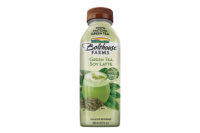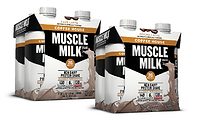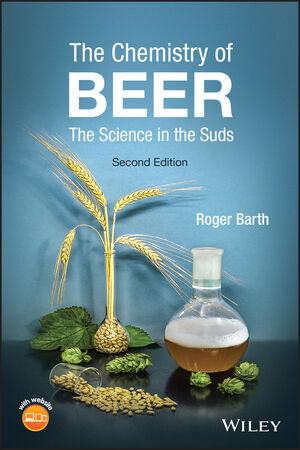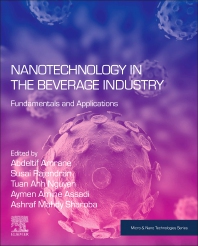Plant-based, whey proteins usage on the rise
Suppliers improving processing quality for protein ingredients

Ascent Recovery Water contains 20 grams of fast-digesting native whey protein and electrolytes. Earlier this year, the brand added Orange Mango to its lineup.
Image courtesy of Ascent Protein
Visitors to the Henry Crown Space Center at the Museum of Science and Industry, Chicago, are able to view artifacts as well as engage in interactive stories and recounts of space exploration. Although consumers weren’t blasting off to outer space, the past year saw more people “exploring” new recipes as well as ingredients, leveraging opportunities for new food and beverage solutions.
“With the stay-at-home measures, consumers cooked more and experimented with new food solutions,” says Angel Aponte, senior account executive and brand manager for AIDP Inc., City of Industry, Calif. “We saw an increase interest in plant-based protein meats, milks, cheeses and eggs.”

Image courtesy of ALOHA
Market research firms have been noting the growth of plant-based protein solutions. According to a March 2021 release from Innova Market Insights, the use of plant-based claims for global food and beverage launches had a compound annual growth rate (CAGR) of 37% during the 2016 to 2020 period. Citing a 2020 Consumer Survey, Innova notes that health was the leading motivator for considering plant-based alternatives with 53% of global respondent naming the factor.
Meanwhile in a July 2021 blog post by Stephanie Mattucci, associate director of food science at Chicago-based Mintel, titled “Are plant-based claims the next ‘all-natural,’” the analyst pinpoints consumers’ perceptions of plant-based as natural and healthy.
“According to Mintel Purchase Intelligence, more U.S. respondents perceived food and drink products with plant-based claims as healthy and natural, compared to a benchmark of all food and drink products,” the blog post states. “This is especially notable as only 9% of these plant-based products also have an all-natural claim. Even compared to a benchmark of food and drink products with an all-natural claim, more respondents perceived plant-based products as natural and healthy.”
AIDP’s Aponte also highlights the reach that plant-based proteins have on today’s consumers.
“Rice and pea have been the mainstays, but we are getting many requests for unique items such as chickpea, fava bean and mung bean. Consumers are still interested in the new and innovative options. In the next few years, you will see the number of plant proteins expand, as demand for plant protein grows.
- Angel Aponte, senior account executive and brand manager for AIDP Inc.
“Plant proteins appeal to those interested in reducing animal protein consumption but also to special diets of vegans and vegetarians,” she says. “An increasing concern for the planet’s health is a recent driving factor in plant proteins’ growth. AIDP looks for sustainable crops that offer protein, such as mung beans. Mung bean is one of the more complete plant proteins, which aids digestion and is high in antioxidants and minerals, which makes it a great option. There are a wide variety of plant proteins that can be grown in numerous types of conditions. AIDP offers RisaPro, PeasiPro, pumpkin-seed, hemp and many other plant proteins, most of which are available in organic forms.”
As the plant-protein market evolves, Aponte prognosticates that the diversification will help the ingredient platform to grow even more.
“Rice and pea have been the mainstays, but we are getting many requests for unique items such as chickpea, fava bean and mung bean,” she says. “Consumers are still interested in the new and innovative options. In the next few years, you will see the number of plant proteins expand, as demand for plant protein grows. AIDP continues to evaluate new plant proteins, but only adds those that offer a unique consumer benefit with an acceptable cost-value to manufacturers.”
Westchester, Ill.-based Ingredion Inc. recognized the value of diversified ingredient solutions with its recent release of the new Prista line of ultra-performance pulse-based ingredients. Included in the line are VITESSENCE Prista P 155 pea protein concentrate and VITESSENCE Prista P 360 faba bean protein concentrate. VITESSENCE Prista P 155 pea protein concentrate offers 55% protein on a dry basis and can be used in bakery, traditional and alternative dairy and ready-to-mix beverages. With 60% protein on a dry basis and a lower overall bitter taste, VITESSENCE Prista P 360 faba bean concentrate is best suited for baked goods, beverages, and traditional and alternative dairy, the company says.
“Purpose-built to break through taste and use level barriers, our new line of ultra-performance Prista pulse ingredients enables our customers to bring to market more of the plant-based protein products consumers want,” said Yadu Dar, Ingredion’s business director of plant-based proteins in the U.S. and Canada, in a statement. “Made possible by our proprietary technology, we are excited to introduce these innovative ingredients to brands in the food, beverage and pet food markets.”

Image courtesy of Take Two Foods
Whey is here to stay
Although plant-based proteins alternatives might be on the rise, reports show that the high amino acid concentration of whey proteins also are benefiting from increased demand. In its “Whey Protein Market in US by Product and Application – Forecast and Analysis 2021-2025” report, New York-based Technavio predicts the market will rise to $829.7 million at a CAGR of 7.28% during the 2021-2025 timeframe.
“Factors such as increasing awareness about the health benefits of whey protein, and wide application of whey protein will offer immense growth opportunities,” the market research firm states in a release. “To leverage the current opportunities, market vendors must strengthen their foothold in the fast-growing segments, while maintaining their positions in the slow-growing segments. The whey protein market in the U.S. is fragmented, and the degree of fragmentation will accelerate during the forecast period.”
Recognizing the growth of ketogenic-focused foods and beverages, Chicago-based Glanbia Nutritionals developed its KetoSure MCT, which combines high-quality coconut-based medium-chain triglycerides (MCT) oil in a powder format with whey protein isolate.
“It’s been well-studied that MCT in the form of C8 is more ketogenic than other fatty acid chains,” said Mayuresh Bedekar, director of product strategic management for Glanbia Nutritionals, in a statement. “Combining a coconut-sourced MCT-C8 with our quality whey protein isolate provides our customers the perfect combination to achieve keto-friendly sports nutrition and weight management focused products.”
Whey ingredient suppliers also are dedicating capital expenditures to help accommodate the growing demand for the protein source. For example, Hilmar Cheese Co. Inc., Hilmar, Calif., announced the company’s decision to build a new state-of-the-art cheese and whey protein processing plant in Dodge City, Kan. The new facility will help Hilmar Cheese Co. meet the growing demand of its customers and the marketplace for cheese and whey products worldwide, it says. The new facility is expected to be fully operational in 2024.
Improving performance
Whether it be plant-based or animal-based, protein usage definitely is on the rise. Although protein usage is in high demand, experts note that energy is being spent to ensure that the ingredient’s ascending performance is not derailed.
“New processing methods have greatly improved the flavor, texture and solubility of many plant proteins,” AIDP’s Aponte says. “This coupled with new plant sources and options make plant proteins a very competitive option for a diverse array of applications.”
Aponte notes that AIDP developed its RiBalance solution, which provides pleasant taste, emulsifies and has protein to balance the protein digestibility corrected amino acid.
Consumer perceptions also are impacting shifts in the protein market.
“Consumers seem to be accepting of lower levels of protein in mainstream products versus using high amounts from scoops,” Aponte explains. “Evolving planting and processing methods give the consumer more palatable and appealing plant options. These methods increased availability to mass market, are more sustainable, and created more diverse and savvy consumers.”
Research from the Innova Consumer Survey also indicates that consumers are more open to amalgamations of plant and animal proteins with 36% of global consumers indicating they would prefer a mix of plant and animal products.
As the protein market evolves, beverage-makers seems to have host of solutions on the horizon.
Looking for a reprint of this article?
From high-res PDFs to custom plaques, order your copy today!










